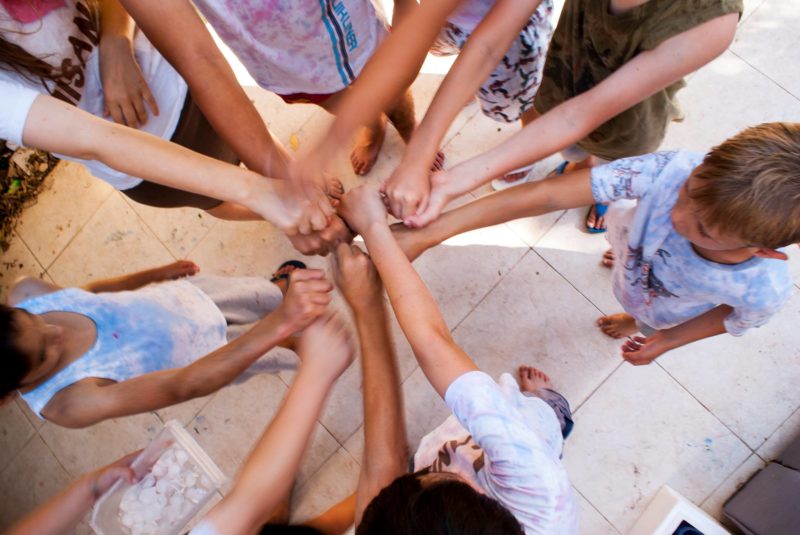Opinion
Inside Israel
Record fundraising during a pandemic: The five lessons Orr Shalom learned
Nonprofits are often well-adapted to fundraising in moments of crisis. Nonprofits in Israel are especially adept at securing extra funds in times of crisis, especially from North America. But how does one fundraise when the entire world is experiencing the same crisis?
When COVID-19 first emerged, we watched the number of cases soar daily. The number of lives lost was staggering in its devastation. Soon, economies across the world shut down one by one. Unemployment surged worldwide as country after country turned inward.


Courtesy
In the spring of 2020, the Orr Shalom External Affairs team struggled over how best to raise resources and build partnerships during this new and unexpected reality brought about by COVID-19. And while we debated how to respond, Orr Shalom’s 1,400 children were in need of extra funds to combat the effects of the pandemic on their lives. Our children needed extra counselors, extra therapists, extra academic help as schools pivoted to Zoom; our graduates needed living stipends and rent assistance as their futures, which they already experienced as tenuous, began to crumble in front of their eyes.
How were we supposed to fundraise when the entire world was experiencing personal and collective tragedy, anxiety, joblessness, and the accompanying economic ramifications?
We debated extensively – in countless Zoom staff meetings – regarding the best strategies for moving forward. On the one hand, we had to be sensitive to the facts on the ground: we needed to honor the fact that people were losing their loved ones and their jobs; on the other hand, our programs had to continue operating and the organization was depending on our team to raise the funds necessary to ensure continuity of all programs and services. Ultimately, we put in place a series of strategies that led us to exceed our pre-pandemic goals by 25%. As we look back, we now see that there are five key lessons that we internalized over the past year that can be used in non-emergency years as well:
Lesson 1: We decided to be bold. If you don’t ask, they won’t give. We opened an emergency online campaign, and we sent a link to the campaign, along with a personal message, to all of our past and present donors. The response was shocking. Our “regular” donors not only kept their commitments but gave us more money after hearing about our children’s increased needs. People who had never heard of us, saw the campaign online and donated. We raised an extra 25% over our pre-pandemic 2020 goal through this Covid campaign.
Lesson 2: Donors are people too! Frequently we experience a type of inferiority complex commonly associated with fundraising. Knowing the entire world was feeling the effects of the pandemic, our team picked up the phone to check in with our donors. Not to ask them for money, but to make sure that they and their families were safe, and healthy. Our donors felt seen and cared for. This deepened the relationship.
Lesson 3: Make sure people see you and they know what you stand for. Unable to travel or take people on site visits, we held bi-monthly zoom gatherings for our friends and supporters to keep them updated as the situation unfolded. Despite the growing “Zoom burnout,” each meeting was well attended; our donors asked insightful questions; and they expressed gratitude for the opportunity to get to know our programming more in depth. This increased visibility has led to new donors and new partnerships. We made sure to put in the time and effort to develop an annual report that was honest about the challenges we faced through the crisis, and highlighted how we confronted the issues. We then made sure to share it with everyone we could.
Lesson 4: Spend time and effort on self-evaluation. Seriously, do it. In May 2020, we commissioned an outside study to evaluate the organization’s initial response. This study proved invaluable to the professional team at Orr Shalom, highlighting successes, challenges, and best practices going forward. Taking a step back to evaluate initial response and reactions to the pandemic – or any other situation – can help tremendously with how you decide to move forwards.
Lesson 5: Create community. This past year allowed for the formation and sustainability of a global community in a way that we had never thought of, let alone experienced. In the midst of the pandemic we formed an International Society composed of major donors from around the world who meet periodically over Zoom to discuss strategies and best practices. Their combined wealth of experience and knowledge is simply invaluable. Further, their commitment to Orr Shalom has deepened as a result of the intimate and warm conversations they have had with others around the globe who share their passion for our work.
These five key lessons teach us that you can absolutely raise money even in a global crisis. If you believe strongly in your cause, and if you create a community of people who also believe, then they will rally around you when you need it the most.
Naomi Liberman is VP of External Relations at Orr Shalom for Children & Youth at-Risk.











